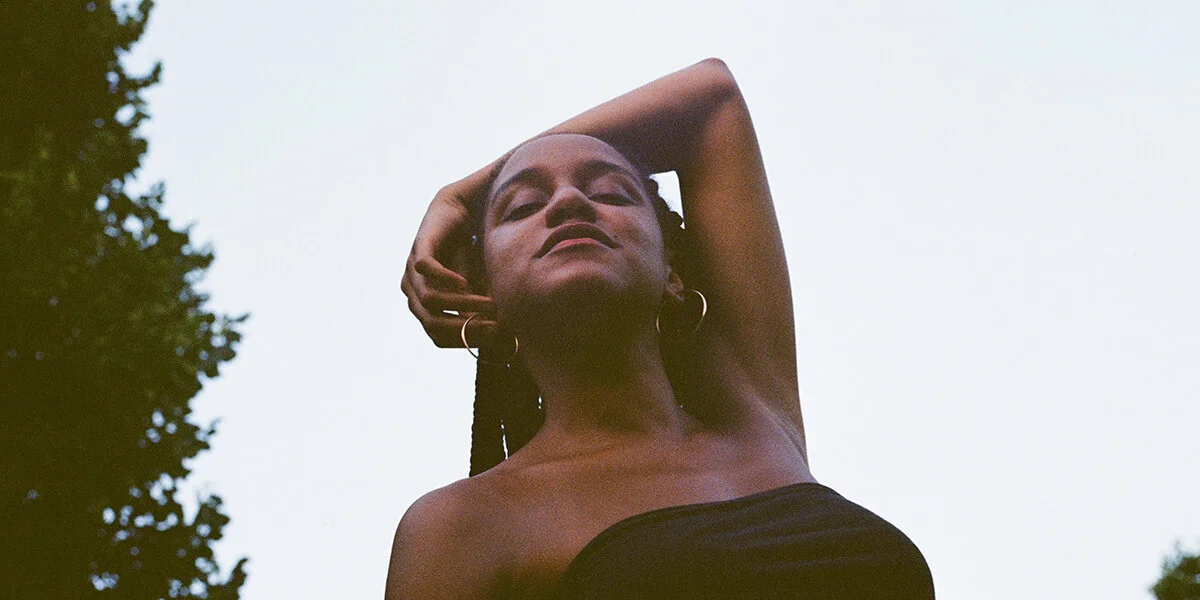Review by Zach Dennis
Director Rebeca Huntt opens her debut feature, Beba, with a declaration: it’s my time to talk so sit down and listen.
The touch is a charming beginning for a film that didn’t really need that statement. Huntt makes the same point clear through her filmmaking as Beba unwinds into a poignant rumination on existence in America and having the choice to define yourself taken away from you because of the color of your skin and your familial past.
Beba is an autobiographical story about Huntt as she explores her family history as someone in their mid-20s finding themselves after leaving college. At the same time, there are protests after the deaths of Trayvon Martin and Michael Brown, and the director is reflecting on her place in the culture after, as she puts it, she leaves the bubble of her liberal arts college and comes home to New York City and her family.
Shot on 16mm, the film exudes a formal confidence unlike most recent debuts. At times, it feels as if Huntt is pulling scenes from movies of the past, and there’s a timeless quality to the story because of this decision to shoot on film. Much like her fellow New York filmmaker Khalik Allah, Huntt is able to find a vibrancy in her community with her camera and there’s an honesty in those moments when the camera is pointed on her mother or father for an interview.
Those relationships inhabit different spaces. Originally from the Dominican Republic, her father wanted more than anything to live near Central Park, and the family still holds their one bedroom apartment. Talking about his desire to stay there, he tells Huntt that he just felt drawn to this portion of the city and couldn’t give up the deal they got for the apartment they live in despite the fact that he and his wife have to sleep in the living room and the kids inhabit the one bedroom. Her relationship with her mother is different. Coming from Venezuela, it seems that there’s this rich culture that Huntt feels drawn to but there doesn’t seem to be the level of communication with her mother that she has with her father. He seems natural in front of the camera, running through story after story. In the scenes interviewing her mother, it feels like a tug-of-war.
Huntt goes into her experience at Bard College – flowing between her predominately white friend group and the same group of Black students at the college. She found a community with one professor, and she never seems resentful of her fellow classmates but the tension between the differing experiences, on a class level even more than a race level, is constantly apparent.
Huntt makes an interesting decision to stage a conversation between herself and a group of white friends about race. In the staged conversation, Huntt is trying to field questions by her friends about what they can do as white people to help Black people in the U.S.A. While it was not a real conversation per se, the decision to include it provides an example of the explanations Huntt had to provide while at Bard College and the experience of being the Black friend among a predominately white group.
Beba has echoes of the spirituality behind the camera that Beyonce displays in both Lemonade and the flashback or practice sequences in Homecoming, and that seems natural hearing about Huntt’s affinity for music. The original score accentuates the imagery in a way that continues to evoke that out of time feeling.
It’s good to see Beba getting attention (as of writing this, the film was picked up by NEON!), as it is clear Huntt is a voice we need to be hearing more of more in movies. Whatever she does next, I’ll be first in line.

